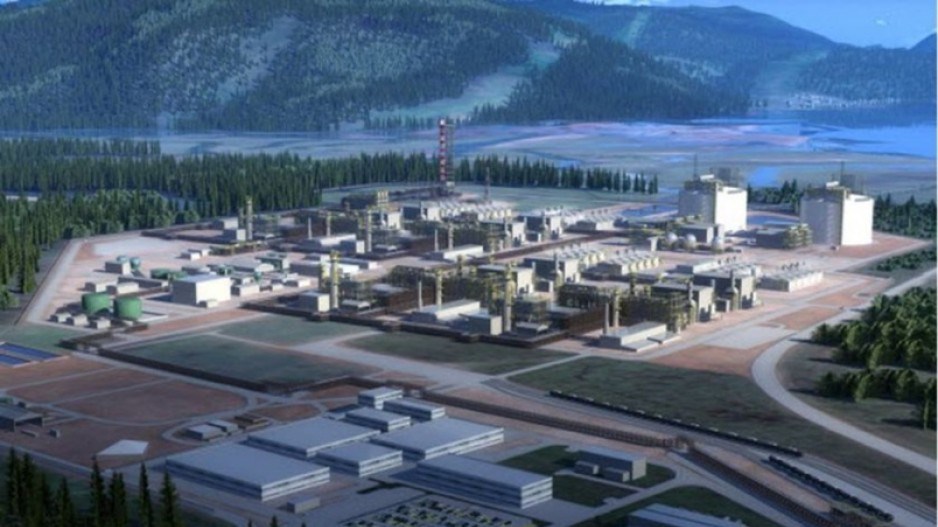While economists disagree about how quickly the provincial economy will grow next year, many project B.C. will outperform provincial counterparts in 2020, largely thanks to booming non-residential investment and a strong services sector.
“Lots of the weakness that we’re seeing across Canada right now is stemming from that lack of business investment, but that’s just not the case when we look at B.C.,” said Alicia Macdonald, associate director of economic forecasting with the Conference Board of Canada.
The board’s latest economic forecast estimates B.C.’s economy grew 2.6% in 2019 and will grow by 3% in 2020.
Major infrastructure investments – including LNG Canada’s multibillion-dollar liquefied natural gas project and the province’s Site C dam – are a clear part of that growth story.
But Macdonald also points to strong office building construction in Vancouver and a bounce-back in housing starts as reasons for B.C.’s superior economic position at the start of the new year.
“A lot of factors are going right on the investment side in B.C.,” she said.
The conference board’s projections are higher than the latest estimates from the province. While asserting that B.C. remains on sound financial footing, Finance Minister Carole James knocked 10 basis points off of B.C.’s projected real gross domestic product (GDP) for 2020 in her second-quarter fiscal update last November. The forecast projects the economy will grow by 2.3% this year.
After downgrading its 2019 outlook for B.C.’s economy three times, the Business Council of British Columbia (BCBC) expects real GDP growth of 2.2% in 2020, up from 1.8% in 2019.
“The challenges we have as an economy cannot be understated,” said Greg D’Avignon, president and CEO of the BCBC.
He said challenges in B.C. include threats to trade and exports, a cumbersome regulatory environment, a high business tax burden and the prediction of a “significant” drop in housing starts.
Many of them will affect employment, which in turn has implications for employer operations and household spending.
“On Vancouver Island, we could see by January-February as many as 14,000 people out of work in that [forestry] sector alone,” he said.
The BCBC expects the rate of employment growth in 2020 will be less than half of what it was in 2019: that’s 1.2% this year, compared with an estimated 2.5% last year. The council also expects B.C.’s unemployment rate to climb to 4.9%.
By contrast, the Conference Board of Canada expects unemployment in B.C. to fall to 4.3%. The province’s tight labour market is finally pushing wages higher, noted Macdonald, as the migration of workers from Alberta eased off in the final months of 2019. It could mean more consumer spending throughout the new year. It also presents another challenge for some businesses.
“They’re having a hard time adjusting to the fact that wages are in fact growing. That is a constraint right now, I think, for a lot of the smaller businesses,” Bryan Yu, deputy chief economist at Central 1 Credit Union, told BIV Today.
Macdonald noted that while major infrastructure investments may mitigate declines in other areas of the economy, the employment benefits do not necessarily balance. For example, central B.C. – a region hit hard by forestry-sector challenges – won’t directly benefit from job creation around coastal LNG.
“In terms of absolute numbers, job gains will continue to be driven by the Greater Vancouver and … Greater Victoria area as well,” she said – areas that will likely benefit from service-sector work related to infrastructure projects.
Despite a slowdown in the global economy, threats related to trade and a residential housing downturn in B.C.’s hottest markets, economists at Toronto-Dominion Bank (TSX:TD) say the province has shown resilience.
Services and non-residential investment – “the biggest growth story” – are “expected to be instrumental” to the economy in 2020, according to the bank’s latest provincial economic forecast.
But despite the economy’s overall resilience, TD acknowledges that softening global commodity demand has affected B.C.’s manufacturing sector, retail sales have struggled to grow and household debt remains high.
TD economists expect employment gains to slow to just half a percentage point in 2020 – a notable decrease from anticipated gains of 2.7% in 2019. Unemployment is expected to tick up to 4.8% from 4.7%. It would still remain the lowest rate in the country.




